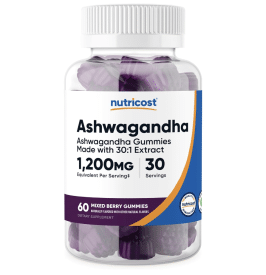Too much stress can have a negative effect on your workouts, and here is why
Our lives are filled with busy schedules. Between work, relationships, personal self care, and trying to stay active and healthy, stress can creep in and disrupt a healthy lifestyle. It can be overwhelming and hard to control much of the time and without knowing the proper ways to manage stress, easing our minds can be a difficult challenge.
While many people choose to ignore the amount of stress that they are under, stress can actually heavily affect your fitness goals in a negative way.
Our team at Generation Iron is going to break it down.
Stress Overview
Your mind and body feed off of one another, working together to keep you both physically and mentally healthy. Exercise is a common and very beneficial stress relieving aid for being active works to boost endorphins to make you feel good (1).
Along with that, knowing you are actively building muscle mass or improving your cardio can really enhance confidence and self-image, thus improving your mood and allowing you to relax and start to settle those stressful thoughts.
Unfortunately, stress can work against us at times and although we may embark on our fitness journey as best we can, the effects of stress can negatively impact our workouts. As a serious de-motivator, it can be hard to lace up our shoes and go for even a short run, let alone a high intensity workout, so learning to manage stress as best we can goes a long way in improving all aspects of our fitness goals.

Negative Effects Of Stress
There are a lot of negative effects of stress on your body, so let’s take a look at some.
Hinders Recovery
Recovery is an essential part of seeing big gains and overall growth, as this is where the muscle repairs bigger and stronger. Being overly stressed can make for a longer time to recover. When you are left feeling tired and sore, your muscles will not have a chance to repair themselves (2).
A lack of recovery not only leaves you feeling fatigued, but it also increases your risk of injury potentially putting you out of the gym. Hydrating is key and adding in a good supplement like a whey protein can aid recovery but also ensure you get enough sleep so your muscles have time to fully recover. Sleep is actually where your body generates the most human growth hormone and testosterone, which are both crucial muscle building hormones.
Increases Muscle Tension
When you are stressed, your muscles tense up to protect against injury, and if not properly recovered, ironically this can lead to unfortunate injury and pain. With tight muscles, your room to grow is seriously diminished and if you are in a constant state of stress, your muscles never truly get a chance to relax. This can also affect posture and trigger increased levels of cortisol, which triggers a fight or flight response leaving you in a continued state of tension.
Working with a physical therapist or getting a massage can really help relieve a lot of this tension. Massage guns are also great at-home muscle relieving tools.

Affects Concentration
Stress forces your mind to wander and that loss of focus just makes you feel as if you are going through the motions. Working on mind-muscle connection in the gym will help you see growth and if a lack of concentration is present, you won’t perform to full potential.
Poor concentration also makes it easier for mistakes to occur with form and technique, also increasing your risk of injury. Yoga and other forms of meditation are healthy ways to really gain clarity when it comes to boosting your concentration and focus.
Increases Appetite and Body Fat
We’ve all experienced an unfortunate binge when we are stressed. That is the result of a hormone called cortisol which is considered the “stress hormone” but also performs functions like aiding metabolism, increasing blood sugar, and modulating the immune system (3). Cortisol can increase your cravings for more sugary foods and mix that with a stressed out person, it leads to binge eating causing an increase in your caloric intake and unfortunate weight gain.
Cortisol also causes your body to store fat, which increases your body fat and makes it hard to get that desired physique (4). This works in a vicious cycle of cortisol being released, increasing your cravings leading to a binge or just unhealthy eating, only to have cortisol then store fat to make it harder for you to lose weight. Working on stress relief and finding a good diet you can stay consistent with will help with this problem big time.

Ways To Reduce Stress
Stressors in our lives will always be present, so knowing how to deal with stress will prove to be huge for our overall health and wellness. One way to reduce stress is to keep in mind that exercise is key, so even when you feel down and out, find an excuse to get moving and get those endorphins flowing because you will feel better after (5).
Too much caffeine or other stimulants can cause stress so working to reduce your caffeine intake will also help. Yes, unfortunately to reduce stress you should try and cut back on pre-workouts and those delicious energy drinks.
Another way to reduce stress is to try things like meditation, yoga, or other mindfulness activities to really work to calm your mind and stay on top of your game.
But most importantly, reach out to people. Whether it be family or friends, talk about what’s going on and let them help you. Your fitness goals are important but so is your overall quality of life so don’t let stress take you down.
Will Ashwagandha Relieve Stress?
In the supplement world, it is often said that ashwagandha will reduce cortisol levels, and relieve stress. That being said, what is the best ashwagandha supplement to do so? Nutricost Ashwagandha Gummies.
Great tasting, convenient, and an effective form of ashwagandha to really help you recover, grow, and improve your overall health.
Each serving of Nutricost’s product delivers a potent 1200mg equivalent of Ashwagandha, meticulously sourced from a concentrated 30:1 Ashwagandha extract at 40mg strength.
Check out the full review here!
Wrap Up
We all deal with stress in different ways. For those of us who love fitness and take our health seriously, stress can unfortunately work against us and force us into deep holes of despair keeping us from what we love and hurting our fitness progress. Hindering recovery, increasing muscle tension, promoting poor concentration, and leading us to weight gain are all ways that stress hurts our fitness goals.
Working to reduce stress through mindfulness activities, talking with family and friends, and of course, pushing ourselves to exercise, are great ways to combat stress so you always win. Don’t let your hard work be taken down by stress and work to reduce it for your overall health and wellness.
Let us know what you think in the comments below. Also, be sure to follow Generation Iron on Facebook, Twitter, and Instagram.
*Images courtesy of Envato
References
- Jackson, Erica M. (2013). “Stress Relief: The Role of Exercise in Stress Management”. (source)
- Stults-Kolehmainen, Matthew A.; Bartholomew, John B. (2012). “Psychological stress impairs short-term muscular recovery from resistance exercise”. (source)
- Christiansen, Jens J.; Djurhuus, Christian B.; Gravholt, Claus H.; Iversen, Per; Christiansen, Jens S.; Schmits, Ole; Weeke, Jorgen; Jorgensen, Jens Otto Lunde; Moller, Niels (2007). “Effects of Cortisol on Carbohydrate, Lipid, and Protein Metabolism: Studies of Acute Cortisol Withdrawal in Adrenocortical Failure”. (source)
- Kandhalu, Preethi. “Effects of Cortisol on Physical and Psychological Aspects of the Body and Effective Ways by Which One Can Reduce Stress”. (source)
- Kim, Jong-Ho; McKenzie, Larry A. (2014). “The Impacts of Physical Exercise on Stress Coping and Well-Being in University Students in the Context of Leisure”. (source)









